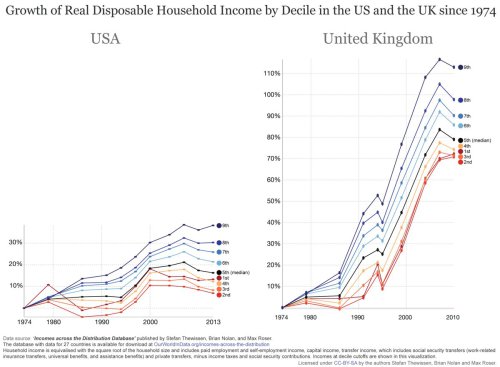On the 23rd of June, Nigel Farage says we got our country back. This couldn’t be any further from the truth. The UK’s decision to leave the EU is the UK’s death knell. I don’t mean to speak in cliches, but goodbye Great Britain, and hello Little England. Every region in Scotland voted to stay in the EU. If the UK leaves, this is a direct violation of the will of Scottish voters. Scottish independence — and possibly Irish reunification, given that a majority of Northern Irish voted to stay — is only a matter of time. The case for Brexit was essentially a xenophobic one, built around malcontents simplistically blaming various external groups — foreigners, establishment politicians, unelected Brussels bureaucrats, etc, etc — for large, complex problems like Western deindustrialization, the arrival of cheaper migrant labour, the Syrian refugee crisis. Now, I don’t think that the European elites have really done themselves any favours. The European economy is in a depression of the Eurocrats’ making, as they forced rounds and rounds of punitive austerity and deflation on depressed economies like Spain, Greece and Portugal that badly needed stimulus and inflation. If their project of ever-closer union is unravelling, it is at least partially their fault for not making a success of the union that they already had.
Topics:
John Aziz considers the following as important: Brexit, Economics, wall street
This could be interesting, too:
Lars Pålsson Syll writes Schuldenbremse bye bye
Lars Pålsson Syll writes What’s wrong with economics — a primer
Lars Pålsson Syll writes Krigskeynesianismens återkomst
Lars Pålsson Syll writes Finding Eigenvalues and Eigenvectors (student stuff)

On the 23rd of June, Nigel Farage says we got our country back.
This couldn’t be any further from the truth. The UK’s decision to leave the EU is the UK’s death knell.
I don’t mean to speak in cliches, but goodbye Great Britain, and hello Little England.
Every region in Scotland voted to stay in the EU. If the UK leaves, this is a direct violation of the will of Scottish voters. Scottish independence — and possibly Irish reunification, given that a majority of Northern Irish voted to stay — is only a matter of time.
The case for Brexit was essentially a xenophobic one, built around malcontents simplistically blaming various external groups — foreigners, establishment politicians, unelected Brussels bureaucrats, etc, etc — for large, complex problems like Western deindustrialization, the arrival of cheaper migrant labour, the Syrian refugee crisis.
Now, I don’t think that the European elites have really done themselves any favours. The European economy is in a depression of the Eurocrats’ making, as they forced rounds and rounds of punitive austerity and deflation on depressed economies like Spain, Greece and Portugal that badly needed stimulus and inflation. If their project of ever-closer union is unravelling, it is at least partially their fault for not making a success of the union that they already had.
But two wrongs don’t make a right, and Britain leaving is basically a case of seppuku, with the country carving itself up and cutting itself off from many of its biggest trading partners.
The UK has by no means done badly in the EU. Look at how British disposable incomes have risen compared to the United States during Britain’s membership:

In truly shocking news, trading with the world and allowing labour to migrate to where it is most productive results in rising living standards! What a surprise!
The market reaction around the world — where the pound has slumped by up to 10 percent at one point — is indicative of just how much the UK has devalued itself through this decision. Nobody knows what will happen now, and markets hate uncertainty. Will EU migrants be forced to leave? When? How about British migrants living in the EU? Will the UK be able to leave given that a majority of MPs are in favour of remaining? How long will Cameron and Osborne last at the top of the British government after campaigning for remaining? Will there be another general election? When? Who will win? How will UK consumers react to this uncertainty? How will UK businesses react? Will they cut investment in fear that exports will be hampered by leaving the EU? How will businesses in Europe and worldwide react? When will Scotland leave? How will Scotland leave? Will Scotland rejoin the EU? Will Ireland reunify? Will the EU begin to unravel altogether as more countries opt to leave?
We don’t really know. These are the things the markets are freaking out about, and we won’t begin to know the answers to these questions until we are further down the road.
It is just disappointing that so little of the debate took these factors into account. Markets couldn’t care less about grandstanding about sovereignty, or the cultural effects of immigration, or “getting our country back”. This kind of stuff doesn’t create jobs, or business opportunities or economic growth. It is entirely self-indulgent and isolationist, like the Ming dynasty’s choice to cut China off from the wider world for cultural reasons.
And that this has come as such a shock to markets suggests the possibility that this may be the straw that breaks the global growth’s back, not just sliding the UK into a recession, but arousing fearful spirits globally.
The tide is going out now, and after an eight year recovery how many banks and hedge funds and pension funds are swimming naked? This kind of extreme and chaotic event is exactly the kind of thing that precipitates financial crises. I don’t know if it will. Nobody — least of all the xenophobes who voted for this mess — really knows. But in the bigger picture, maybe this is our 1937. It certainly is the end of the UK.
